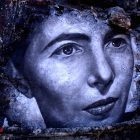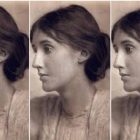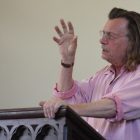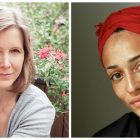The Best Poem I Read This Month: Nikki Wallschlaeger’s “Blues for A Bar So Low That It Became a Cage”
Nikki Wallschlaeger is the author of the collection Houses and the graphic chapbook I Hate Telling You How I Really Feel, two arrangements that undercut artifice and underline activation energies. This month, I dove into one of her new poems from the most recent incarnation of The Journal Petra, an experimental online biannual featuring five poets. The poems by Brandon Shimoda, Jasmine Gibson, Sara Wainscott, and Johanna Hedva in Petra’s new issue all deserve exclamation and exuberant examination, but I was drawn to Wallschlaeger’s “Blues for A Bar So Low That It Became a Cage,” especially after seeing her perform a month ago at the Poetry Project with 남 은송. Reading her new work resulted in a reverberation I needed to record and scatter. Wallschlaeger’s poems sometimes manifest as sonnets and in other instances as memes bound in hand-sewn books. While I’m apprehensive at the idea of defining Wallschlaeger’s poetics singly, crisscrossing the Internet and soil begins a conjure-formation to initiate a reading.
The benediction beginning “Blues” is by Badu, bemoaning the behemoth of our pop landscape, that same Reality Show portraying “greatness” while presenting us with its violent dregs. The poem is an active blues, a working-through of the same cultural creations in the “curated” United States that insist on screwing over its minority populations while bolstering its own puffed-up totally imagined majesty with blistering and increasingly frightening regularity. Wallschlaeger’s poem, making itself up in a world that’s “drinking from the cerulean anthropocene,” combats the rigid dimensions of larger-than-life oppressive impositions: “I want to thank someone but don’t want to thank G.O.D. / Sprinkling around hybrid seeds. Didn’t mean you Monsanto!” Its mode isn’t “screw the world,” but “screw the world as we’re force-fed to imagine it.”
There isn’t a desire in Wallschlaeger’s poem to “walk…on black & white eggshells,” resulting in “folks look when we go out sideway highway type away,” where race and gender are hatefully ignored instead of acknowledged. Instead, the world is looked at straight-on, in the “Driftless bush,” unwavering, “by a love that is not America.” The world becomes everything beyond the “cage” sustained by media and chopped up by “company underlings”; it’s a manifestation of physical and grown phenomenon; it involves “two babies lighter than my winter / skin” and “shoes that hurt.” Yes, the blues in this poem are presented as a “bar blues” and a “strange blues,” but also as a lapis, a cerulean, and “turquoise trenchant.” Instead of bowing to dichotomies, the poem bristles, brims, grows, groans, and stretches with varieties of chance, exhaustion, and blessing. The blues are related to the poem’s blackness, a black pastoralism rooted in the past, present, and future, where the poem’s speaker acts as both archaeologist and cultivator, from the first line “I collect the fossils”—a present-tense archival work—to the future desire: “I want to live to be a bodacious old lady in a lapis housedress / watering my geraniums.” Blackness pivots at the “drop off point [being] diaspora” and reaches a hymn for [the] everyday: “sometimes I gotta bless myself.”

The “Blues” Wallschlaeger writes cannot be accompanied by anything but a fervent wish to act, affect, and bring about resistant forms of being in this world. “You got 2 seconds to gather up your things,” the poem commences, and the question of the poem could be understood as: “In an instance, what are the things you gather?” Here are Wallschlaeger’s assemblings, garden-congregations configured for sustenance and existence.



